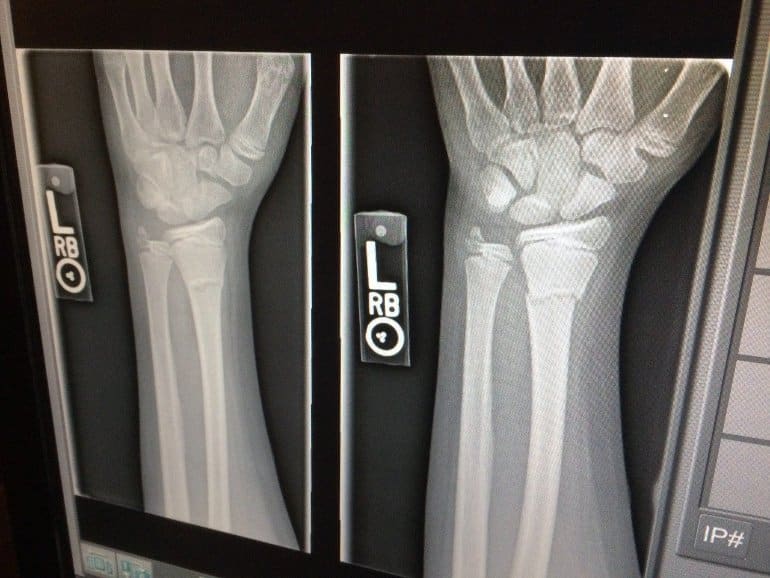Summary: Cognitive decline was associated with accelerated bone loss and an increased risk of fractures in older women.
Source: Wiley
New research published in the Journal of Bone and Mineral Research has found that cognitive decline is linked with accelerated bone loss and an increased fracture risk in women.
In the study of 1,741 women and 620 men aged ?65 years without dementia who were followed from 1997 through 2013, both genders experienced similar declines in cognitive function and bone mass.
After adjustments, cognitive decline was associated with bone loss in women but not men. Also, significant and clinical important cognitive decline in women was associated with a 1.7-fold higher risk of bone fractures over the subsequent 10 years.
Notably, the relationship between bone loss and cognitive decline was bidirectional with no evidence of one preceding the other. The relationship between cognitive decline, bone loss, and fracture risk in women may be driven by shared risk factors.

“These findings may help refine clinical practices guidelines regarding how bone loss and cognitive decline can be monitored in older age, to ensure appropriate and effective treatment,” said lead author Dana Bliuc, PhD, MD, of the Garvan Institute of Medical Research, in Australia.
“This is particularly important because both bone loss and cognitive decline are ‘silent conditions’ that can go undetected for long periods of time, often until the conditions have severely progressed.”
About this cognitive decline research news
Source: Wiley
Contact: Press Office – Wiley
Image: The image is in the public domain
Original Research: Closed access.
“Cognitive decline is associated with an accelerated rate of bone loss and increased fracture risk in women: a prospective study from the Canadian Multicentre Osteoporosis Study” by Dana Bliuc et al. Journal of Bone and Mineral Research
Abstract
Cognitive decline is associated with an accelerated rate of bone loss and increased fracture risk in women: a prospective study from the Canadian Multicentre Osteoporosis Study
Cognitive decline and osteoporosis often coexist and some evidence suggests a causal link. However, there are no data on the longitudinal relationship between cognitive decline, bone loss and fracture risk, independent of aging.
This study aimed to determine the association between: (i) cognitive decline and bone loss; and (ii) clinically significant cognitive decline (≥3 points) on Mini Mental State Examination (MMSE) over the first 5 years and subsequent fracture risk over the following 10 years. A total of 1741 women and 620 men aged ≥65 years from the population-based Canadian Multicentre Osteoporosis Study were followed from 1997 to 2013.
Association between cognitive decline and (i) bone loss was estimated using mixed-effects models; and (ii) fracture risk was estimated using adjusted Cox models. Over 95% of participants had normal cognition at baseline (MMSE ≥ 24). The annual % change in MMSE was similar for both genders (women −0.33, interquartile range [IQR] −0.70 to +0.00; and men −0.34, IQR: −0.99 to 0.01). After multivariable adjustment, cognitive decline was associated with bone loss in women (6.5%; 95% confidence interval [CI], 3.2% to 9.9% for each percent decline in MMSE from baseline) but not men. Approximately 13% of participants experienced significant cognitive decline by year 5.
In women, fracture risk was increased significantly (multivariable hazard ratio [HR], 1.61; 95% CI, 1.11 to 2.34). There were too few men to analyze. There was a significant association between cognitive decline and both bone loss and fracture risk, independent of aging, in women.
Further studies are needed to determine mechanisms that link these common conditions.







